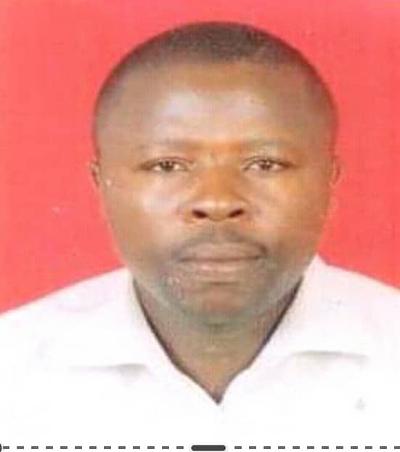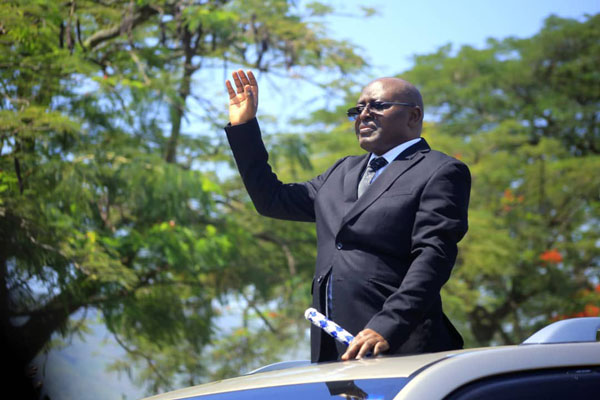In a previous training organized by Makerere University Mbale branch for the Imbalu committee and media, which included NTV, BCU Radio, Daily Monitor, among others, one of the facilitators, Mr. Abdu Mutanje, challenged the Bamasaaba by positing, “If you find where there are no leaders, lead, and where there are leaders, follow.” Leadership is generally defined as the ability of a superior to influence the behaviors of his subordinates so that they achieve organizational goals.
The late Zimbabwean President Robert Mugabe once put it succinctly: when you are leading and no one is following, then you are not a leader. Leaders possess both formal and informal authority, and this authority is construed differently. In the 1970s, the late Ugandan President General Amin tasked Makerere University professors to define the word “power” for him. Each professor tried to define the word power according to the various schools of thought they had studied at the university. At the end of the “futile” attempt, General Iddi Amin pointed to a packed military jeep and said, “That is power.”
Cultural leaders generally must have the following leadership qualities if they are to provide effective leadership to their subjects:
- Good sense of judgment: A cultural leader should possess a deep sense of human psychology, enabling him to quickly understand human behavior, emotions, sentiments, needs, and motives, and above all, avoid bootlicking by palace officials. Once well imbued with the above skills, he is able to tell what will fly and what will not.
- Good communication and convincing skills: For example, Napoleon Bonaparte was reputed for the above during his infamous Italian campaign of 1796. He almost left France with no soldiers since he convincingly told the French soldiers, “You are badly fed and dressed, follow me, and you will get honor and glory in Italy.” And true to his word, there was honor and glory in Italy as they almost looted Italy bare. Once a cultural leader knows the language of his followers, he will be in full command, and powers that be will be scouting him to mobilize his people for any public cause.
- Well-motivated: It is only a well-motivated person who can motivate others. Motivation can be intrinsic and extrinsic, both from within and outside. Motivation takes various shapes, and many studies on motivation indicate it is a magic wand of success once employed. I, therefore, encourage cultural leaders to dare it. It is worthy of the recommendation.
- Intelligent and knowledgeable: A cultural leader should be intelligent and knowledgeable. Among the Bamasaaba, the minimum qualifications for the office of Umukuka are an advanced certificate in education. Other implied qualifications may include previous working experience, and the current head of the cultural institution, His Highness Jude Mike Mudoma, is the most highly educated leader in Uganda with a master’s degree in forestry. Since the subjects that a cultural leader manages are well-schooled in technology and other modern gadgets, it makes sense for a cultural leader to be well-schooled. The late Mushikor, who was Umukuka 11, was a security-trained operative, and Wilson Wamimbi, the first Umukuka, was a secondary school teacher and a politician.
- Emotional stability and decorum: A cultural leader is the last person to speak, and once he speaks in terms of protocol, nobody else speaks. He or she must carry himself or herself with decorum; how he or she talks or laughs, including dressing, is very important. One must manage his or her emotions and should not allow them to spill in public. A simple smile is sufficient. Those who studied at Makerere University and were residents of Livingston Hall know vividly the characters of the gentlemen of Livingston; however heavy rain would pour, a gentleman would walk gently and not run, and cultural leaders must immerse themselves in the Livingston Hall mentality.
- Multilingualism: In terms of education, Sir Edward Mutesa was more schooled than any cultural leader in Uganda in the 1960s. As Malcolm X once put it, a cultural leader should not be a man who speaks only one language; he should understand aspects of Chinese, French, among other languages or other native languages, e.g., Lusoga, Lugwere, Lunyankole, Lugisu, Lugika, and Acholi, among others.
- Visionary: He must have a vision for his people and ensure that such a vision is fulfilled. Leaders without a vision are a burden to their subjects and may over-drain them since they will engage in begging for fuel, food, and other petty things, including engaging in unscrupulous acts.
- Other qualities: Wisdom, empathy, sociability, and sound judgment. During the inauguration ceremony for the Inzuyamasaba cultural leader recently, the overall clan chairman Mr. Wabuyi Peter, while handing over the instruments of cultural power, challenged the cultural leader to always exercise constant judgment before calling for war in case he thought Bamasaaba were under attack by blowing the horn. Therefore, judgment and foresight, including hindsight, are core attributes of cultural leadership, where a leader needs a cultural history of his society, present and future knowledge as well.
Cultural institutions are like any other organization, except that their mandates revolve around shaping the culture of the citizens. In the face of Western education and technology, many young people are removed from their cultural bearings, and their cultural institutions have the mundane task of ensuring that they shape the behavior of the young in the face of various negative forces. The cultural institutions must and should struggle to preserve what is native, as they are the custodians of our morals, traditions, and norms, including mores.
Cultural leaders should be seen as very modern but must maintain some level of antiquity (oldness). That is why you see others put on lion and leopard skins as clothes. Recently, during the Busoga royal wedding, some Eswatins arrived dressed in bedsheets, among other royal attires. During the inauguration ceremony of Umukuka of Bugisu, he was given the following regalias: a horn, a stool, and spears, and not guns and ammunition, since guns are the mandate of the military. Cultural leaders shouldn’t be protected like military generals; a spear is sufficient traditional protection. I take cognizance that the Government has specialized military officers to guard the cultural leaders on top of other local or traditional protection.
The above write-up is for all engaged in cultural matters of their communities, from the cultural leader, clan heads, and all assistants of the cultural institution. Cultural leaders also require managerial skills like delegation and evaluation of whatever information that comes into their desk before taking action, including incessant consultations and adhering to enabling constitutional and natural justice principles and any other cultural and legal provisions. Many cultural leaders, especially in Buganda about 300 years back, murdered their subjects without even conducting criminal trials for alleged crimes. Uganda has various laws that all cultural leaders must respect. Murder, defilement, and rape are not within the mandates of cultural leaders, as the roles of cultural leaders are well spelled out in the Ugandan constitution and the Cultural Leaders Act of 2011. Customs must equally be subservient to the written Ugandan laws; no custom, therefore, is above enacted laws. Customs must not go against public policy tests, among others.
The writer is a researcher from Mbale and also the spokesperson for Inzuyamasaba. Tel: 0782231577.




















